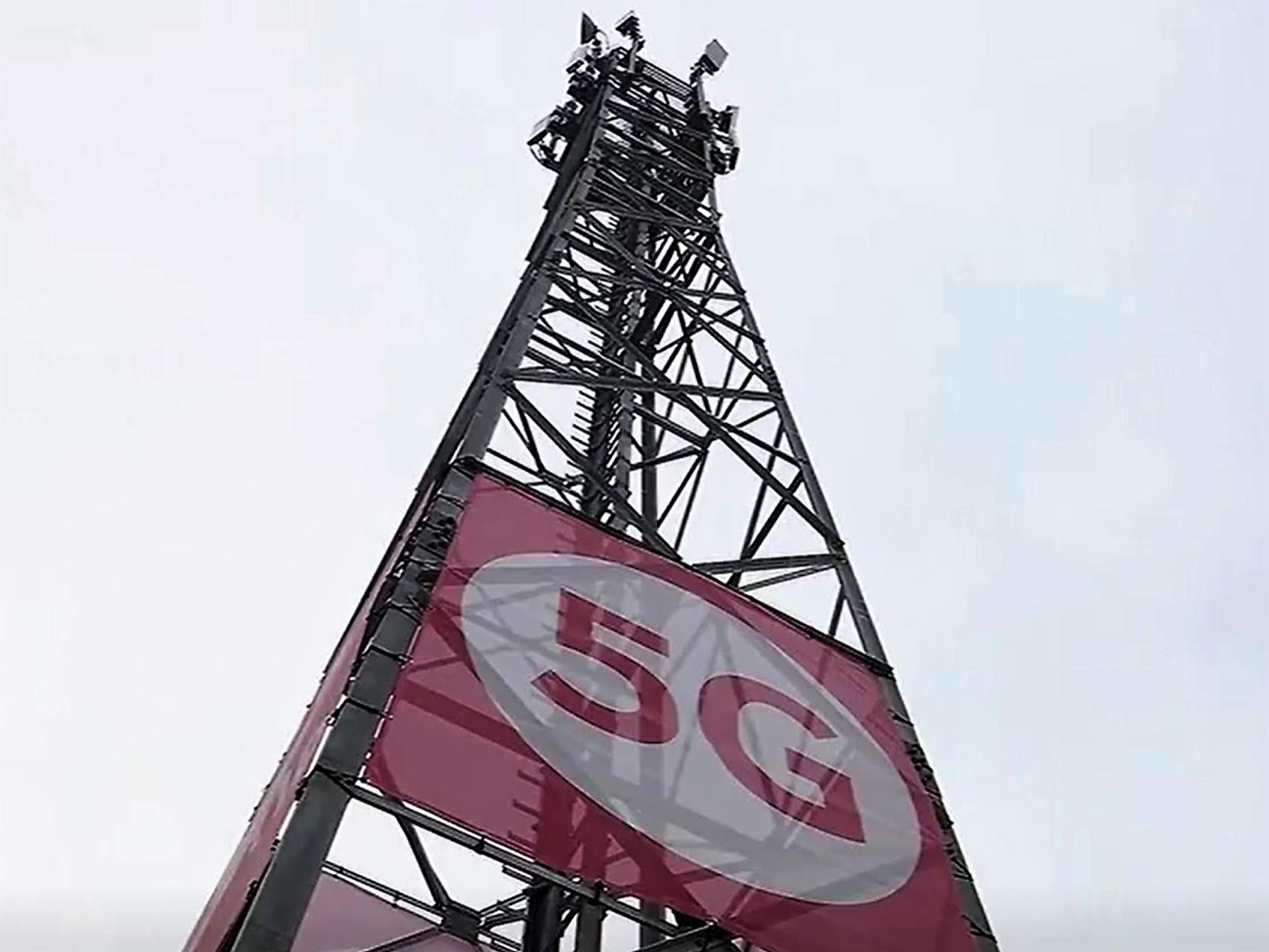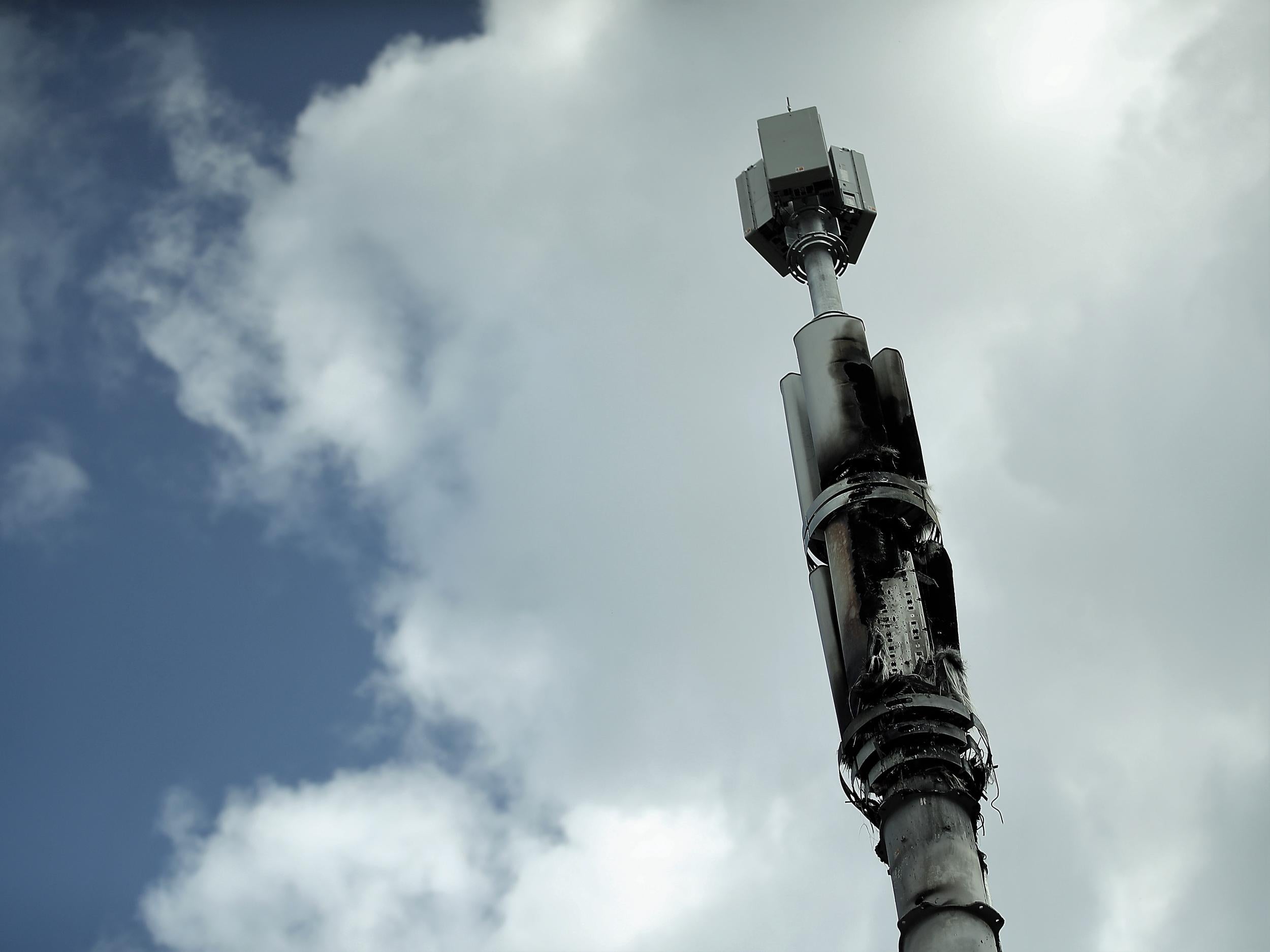5G and coronavirus: Thousands of conspiracy theorists gather in Facebook groups to plot 'silent' protests
Popular online groups urge people to turn off their smartphones on 13 April to 'make a noise'

Your support helps us to tell the story
From reproductive rights to climate change to Big Tech, The Independent is on the ground when the story is developing. Whether it's investigating the financials of Elon Musk's pro-Trump PAC or producing our latest documentary, 'The A Word', which shines a light on the American women fighting for reproductive rights, we know how important it is to parse out the facts from the messaging.
At such a critical moment in US history, we need reporters on the ground. Your donation allows us to keep sending journalists to speak to both sides of the story.
The Independent is trusted by Americans across the entire political spectrum. And unlike many other quality news outlets, we choose not to lock Americans out of our reporting and analysis with paywalls. We believe quality journalism should be available to everyone, paid for by those who can afford it.
Your support makes all the difference.Thousands of people are assembling online to plot protests promoting the dangerous and baseless conspiracy theory that the coronavirus pandemic is somehow linked to 5G technology.
More than 10,000 so-called 'truthers' have gathered in one Facebook group to plan a global protest for Easter Monday aimed at preventing the roll out of the next-generation cellular technology.
The ‘Worldwide Unified Protest Against 5G – Easter Uprising’ group made a call-for-action despite Covid-19 containment measures preventing more than half of the world’s population from assembling en mass.
Organisers urge protesters to instead “shut down internet devices” on 13 April by turning off their smartphones, tablets and personal computers.
“We need to be heard from a distance and silently,” the page states. “We will hit the companies in their pockets and make a noise.”
The creators of the Facebook group also encouraged members to write songs and make paper signs. “Be as creative as possible,” they wrote. “Your planet depends on you.”
Another group of a similar size appears to be planning a protest against 5G on the 25 April, though it is not immediately clear what action they will take.
Countless scientists and researchers, who have no underlying interests relating to the telecoms industry or the development of 5G, have debunked the unfounded claims.
The idea was dismissed as “complete rubbish” by Dr Simon Clarke, associate professor in cellular microbiology at the University of Reading, while scientists at the International Commission on Non-Ionizing Radiation Protection concluded in a major study earlier this year that there was no scientific evidence of any health risks associated with 5G.
The Facebook groups promoting the conspiracy typically cite unscientific and unverified research from second or third hand sources, yet it gains far more traction than peer-reviewed studies. The groups have proved so effective in stoking fears that some conspiracy theorists have begun to take action in the real world, with at least 20 UK phone masts vandalised since last week by suspected arsonists.
Facebook told The Independent it would investigate the groups and has previously said it would remove certain posts claiming a link between 5G networks and the spread of the coronavirus.
The social network said it was taking “aggressive steps” to remove misinformation but only taking down posts that are likely to cause physical harm or damage.

Posts that do not violate its rules on attacks of people or infrastructure will instead be fact-checked and labelled with a “disinformation” warning, however dozens of posts and groups promoting the conspiracy theory continue to proliferate on the platform without any labels.
Misinformation is also spreading in group chats and private conversations on the Facebook-owned messaging app WhatsApp. In an effort to prevent such misleading conversations, WhatsApp announced this week that it would restrict the amount of times a person could forward frequently-shared messages.
“We know many users forward helpful information, as well as funny videos, memes, and reflections or prayers they find meaningful,” WhatsApp wrote in a blog post announcing the change.
“However, we’ve seen a significant increase in the amount of forwarding which users have told us can feel overwhelming and can contribute to the spread of misinformation.”
Join our commenting forum
Join thought-provoking conversations, follow other Independent readers and see their replies
Comments